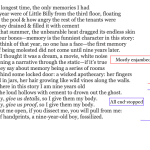Did you know that Spain is known for its culture of politeness? In fact, according to a study conducted by the Spanish Institute for Tourism Studies, 89% of Spaniards believe that being polite is very important in their society.
Whether you’re planning a trip to Spain or simply want to learn more about Spanish customs, this discussion will provide you with valuable insights into the art of politeness in the Spanish language.
From greetings to expressing gratitude, apologizing, and navigating formal settings, we will explore a variety of polite phrases and cultural etiquette that will help you navigate social interactions in Spain.
So, let’s dive into the fascinating world of Spanish politeness and discover how to say ‘bless you’ and more!
Greeting Customs
When greeting someone in Spanish, it’s common to use a handshake or a kiss on the cheek, depending on the level of familiarity. Handshakes are more formal and are typically used when meeting someone for the first time or in professional settings. It’s important to maintain eye contact and have a firm grip while shaking hands.
On the other hand, kisses on the cheek are more common among friends, family, and close acquaintances. The number of kisses varies depending on the region and personal preference. In some parts of Spain, people exchange two kisses, while in other regions, it’s customary to give three kisses. When giving a kiss, lean in and touch cheeks while making a light kissing sound.
It’s important to note that greetings in Spain may differ from those in Latin American countries. For example, in Spain, it’s more common to give a kiss on each cheek, while in Latin America, a single kiss on one cheek is more typical. Additionally, some people may prefer to greet with a hug or a simple wave, so it’s always a good idea to follow the lead of the person you’re greeting.
Saying ‘Bless You
Have you ever wondered how to say ‘Bless You’ in Spanish? Well, wonder no more! When someone sneezes in Spanish-speaking countries, it’s customary to say ‘Salud’ or ‘Jesús’ as a response.
‘Salud’ literally translates to ‘health’ and is often used to wish the person good health. On the other hand, ‘Jesús’ is a more religious response, as it means ‘Jesus’ and is said to protect the sneezer from evil spirits. Both phrases are polite ways to acknowledge someone’s sneeze and show concern for their well-being.
It is worth noting that the response to a sneeze may vary depending on the region or personal preferences. Some people may choose to say ‘Bendición’ which means ‘blessing’ or ‘Dios te bendiga’ which translates to ‘God bless you.’ These phrases are more commonly used in formal or religious settings.
In addition to saying ‘Bless You,’ it’s also polite to respond with a simple ‘Gracias’ or ‘Thank you’ when someone says it to you. This shows appreciation for their kind gesture.
Whether you choose to say ‘Salud,’ ‘Jesús,’ ‘Bendición,’ or ‘Dios te bendiga,’ the important thing is to acknowledge the sneeze and show empathy towards the person who sneezed.
Expressing Gratitude
After acknowledging someone’s sneeze and showing concern for their well-being, it’s important to express gratitude in Spanish-speaking countries. In these cultures, expressing gratitude is considered essential to maintaining good manners and showing appreciation for others.
One common way to express gratitude is by saying ‘gracias,’ which is the Spanish word for ‘thank you.’ This simple phrase can be used in a variety of situations, such as when someone holds the door for you or when you receive a gift.
Another way to express gratitude is by saying ‘muchas gracias,’ which means ‘thank you very much.’ This phrase is often used to show extra appreciation or to express gratitude for a particularly kind or generous act.
In addition to these phrases, it’s also polite to use other expressions of gratitude, such as ‘te agradezco mucho,’ which means ‘I thank you very much,’ or ‘estoy muy agradecido/a,’ which means ‘I am very grateful.’
Apologizing in Spanish
To apologize in Spanish, you can use the phrase ‘lo siento,’ which translates to ‘I’m sorry.’ This simple phrase is widely used in Spanish-speaking countries when expressing remorse or asking for forgiveness. ‘Lo siento’ can be used in various situations, such as when you accidentally bump into someone on the street, make a mistake, or unintentionally offend someone. It’s a polite and straightforward way to acknowledge your wrongdoing and show empathy.
When using ‘lo siento,’ it’s essential to convey sincerity through your tone and body language. A genuine apology can go a long way in repairing relationships and showing respect for others. Additionally, if the situation calls for a more formal apology, you can use ‘me disculpo’ or ‘pido disculpas,’ which both mean ‘I apologize’ in a more formal manner.
Remember that actions speak louder than words. Along with saying ‘lo siento,’ it’s crucial to make amends and take responsibility for your actions. Offering to fix the mistake or finding a solution shows that you genuinely regret what happened.
In Spanish culture, apologizing is seen as a sign of humility and respect. By using phrases like ‘lo siento,’ you’re demonstrating your understanding of Spanish politeness and willingness to make things right. So, the next time you find yourself in a situation where an apology is necessary, remember to say ‘lo siento’ and take steps to make up for your mistake.
Polite Phrases for Everyday Situations
If you want to navigate everyday situations in Spanish with politeness, it’s important to know some key phrases. Whether you’re greeting someone, asking for help, or expressing gratitude, using polite language can go a long way in making a positive impression.
To start a conversation politely, you can use phrases like ‘Buenos días’ (Good morning), ‘Buenas tardes’ (Good afternoon), or ‘Buenas noches’ (Good evening).
When asking for something, it’s essential to use phrases such as ‘Por favor’ (Please) and ‘Gracias’ (Thank you) to show your appreciation.
If you need to apologize, you can say ‘Lo siento’ (I’m sorry) or ‘Perdón’ (Excuse me).
Additionally, when someone helps you, it’s polite to say ‘Muchas gracias’ (Thank you very much) or ‘¡Qué amable!’ (How kind!).
Remember to use ‘De nada’ (You’re welcome) when someone thanks you.
Cultural Etiquette in Spain
Spanish cultural etiquette emphasizes the importance of formal greetings and respectful behavior in social interactions. When meeting someone for the first time, it’s customary to exchange a handshake and use the formal form of address, such as ‘Señor’ or ‘Señora,’ followed by the person’s last name. It’s considered polite to maintain eye contact while speaking and to use appropriate titles, such as ‘Don’ for men and ‘Doña’ for married women.
In Spain, punctuality is highly valued, so it’s important to arrive on time for social gatherings and appointments. It’s also customary to greet everyone individually when entering a room or a social event.
When dining in Spain, it’s polite to wait until the host or hostess starts eating before you begin. It’s customary to keep your hands visible on the table and to use utensils while eating. It’s also considered respectful to finish everything on your plate and to avoid leaving any food behind.
In Spanish culture, personal space is less important, and people tend to stand closer to each other during conversations. It’s common to greet people with a kiss on both cheeks, even if you have just met. It’s important to be mindful of these cultural practices and to adapt your behavior accordingly when interacting with Spaniards.
Politeness in Formal Settings
In formal settings, it’s crucial to adhere to Spanish cultural norms of politeness and respectful behavior. When engaging in formal conversations or meetings, it’s important to use formal language and address others with the appropriate titles.
For example, when addressing someone for the first time, it’s customary to use their professional title followed by their last name, such as ‘Señor’ or ‘Señora’ and their surname. Remember to use the formal version of ‘you,’ which is ‘usted,’ instead of the informal ‘tú.’
Additionally, it’s customary to greet people with a handshake in formal settings. Maintain eye contact and smile while greeting others, as it shows respect and interest.
During conversations, it’s important to listen actively and avoid interrupting others. Wait for your turn to speak and show that you value the opinions and contributions of others.
When it comes to business meetings or events, punctuality is highly valued. Arriving a few minutes early is a sign of respect for the other person’s time and shows professionalism.
It’s also customary to exchange business cards during these occasions. When receiving a business card, take a moment to read it and show interest in the person’s details.
Frequently Asked Questions
What Are Some Common Greetings Used in Spain?
In Spain, common greetings include “hola” (hi) and “buenos días” (good morning). It’s also polite to say “adiós” (goodbye) when leaving. These greetings are commonly used in Spanish-speaking countries.
How Do You Say ‘Bless You’ in Spanish?
When someone sneezes, you can say “salud” in Spanish, which means “health.” It’s a polite way to acknowledge the sneeze and wish them well.
What Are Some Polite Ways to Express Gratitude in Spanish?
When expressing gratitude in Spanish, you can say “gracias” (thank you) or “muchas gracias” (thank you very much). These phrases are commonly used and will show your appreciation in a polite manner.
How Do You Apologize in Spanish?
To apologize in Spanish, you can say “lo siento” which means “I’m sorry.” It’s a common and polite way to express remorse or apologize for any mistakes or inconvenience caused.
What Are Some Polite Phrases to Use in Everyday Situations in Spain?
When in Spain, it’s important to know some polite phrases for everyday situations. Saying “por favor” (please) and “gracias” (thank you) goes a long way. Also, don’t forget to say “salud” (bless you) when someone sneezes.
Conclusion
In conclusion, mastering the art of politeness in Spanish is essential for effective communication and building relationships. From greeting customs to expressing gratitude and apologizing, knowing the appropriate phrases can make a positive impression.
Additionally, understanding cultural etiquette in Spain and being polite in formal settings demonstrates respect and professionalism.
So, whether you’re traveling to a Spanish-speaking country or interacting with Spanish speakers in your daily life, incorporating these polite phrases will go a long way in fostering goodwill.


